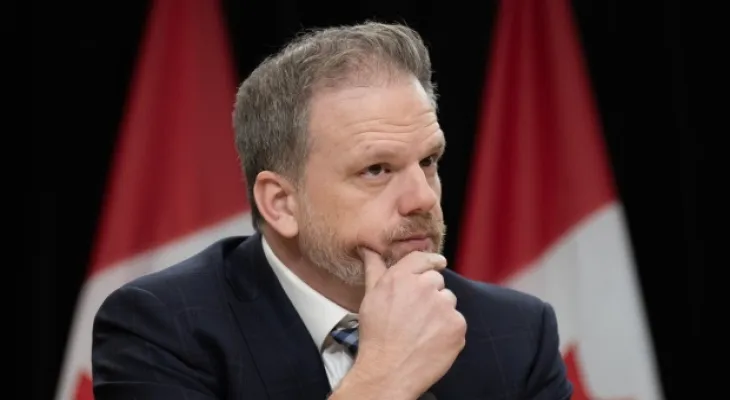Search here
Newspaper
Search here

Arab Canada News
News

Published: February 11, 2024
Health Minister Mark Holland said he has "every confidence" in his government's ability to deliver pharmaceutical care legislation by the promised deadline of March 1, and that the Liberals are "not sounding the fire alarm" regarding the confidence-and-supply agreement with the New Democratic Party on this issue.
New Democratic Party leader Jagmeet Singh said this week that there would be "consequences" if the Liberals do not deliver enough of the framework legislation for pharmaceutical care by next month, indicating that he would interpret a missed deadline as them having "pulled out" of their confidence-and-supply agreement.
The agreement stipulates the New Democratic Party's support for the Liberals until 2025 in exchange for progress on key priorities, including pharmaceutical care, for which the two parties have already extended the deadline once before.
Despite Singh's statements, Holland told CTV's question period host Vassy Kapelos in an interview aired today Sunday that he will meet the deadline.
Holland added, "I have full confidence that it will be tabled on time," "I appreciate that negotiations aren't easy, and some of it plays out publicly. But NDP health critic Don Davies has been a great partner to work with, we've had a lot of back and forth work.
He continued: "So I am confident that we will be able to find a solution and that we will have legislation tabled before that deadline."
While Holland insists that the federal government is capable of fulfilling its promise on the pharmaceutical care deadline, he would not provide details on the plan's contents.
This week, when asked to update on the status of talks and the overall economic constraints on the government given the estimated multi-billion-dollar cost of the universal drug program, Holland admitted that the federal government "cannot afford this program to be hugely expensive."
The Parliamentary Budget Officer (PBO) estimates the total spending on prescription drugs under a single-payer universal drug plan to be $33.2 billion in 2024-2025, rising to $38.9 billion in 2027-2028, according to a report released last October.
Miller said to Kapelos: "We can't do everything all at once, I think it's fair to say that."
Pressed on whether the framework legislation would pave the way for a single-payer system—and whether he personally thinks it should—Holland did not say, but added that he is not "ideologically committed to any one option."
He said, "I think the bottom line should be that everyone, everywhere in the country, is covered, and can afford their medication."
The Liberals are not "sounding the fire alarm" on the NDP deal
When asked whether the confidence-and-supply agreement still serves the government—despite the hard lines drawn and warnings from the NDP about breaching the deal—Holland said it definitely does.
He confirmed, "It's a great starting point," "That doesn't mean we agree with the New Democrats on everything; sometimes we work with other parties, but it creates predictability."
Holland also said he would not speculate publicly on the future of the deal, referring to his time as government house leader when he was repeatedly asked whether one issue or another might fatally damage the agreement: "That's not how I operate. And I've never speculated, I just don't think it's helpful."
He added, "But I don't think Canadians want us to sound the fire alarm."
While Holland insists the agreement with the NDP still has its benefits, some committee members on CTV’s weekly strategic question period suggested now might be an opportunity for parties to change the deal’s terms.
Holland also discussed in his interview the recently signed $3.1 billion healthcare deal with Ontario, which the federal government and provincial governments say will increase access to primary care and reduce wait times.
Comments